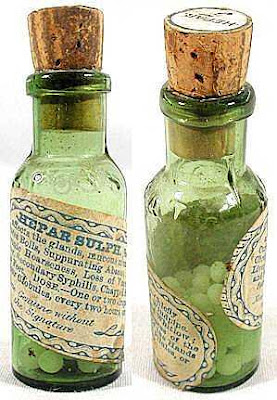 Homeopathy is a system of medicine devised by a German doctor in the late 18th century. Samuel Hahnemann became disenchanted with existing medical practices of his time and decided to investigate new techniques. So, he began to carry out experiments on himself and other healthy volunteers until he came up with the “like cures like” theory. According to Hahnemann’s findings, an illness can be treated with a tiny fraction of the same substance that caused it in the first place.
Homeopathy is a system of medicine devised by a German doctor in the late 18th century. Samuel Hahnemann became disenchanted with existing medical practices of his time and decided to investigate new techniques. So, he began to carry out experiments on himself and other healthy volunteers until he came up with the “like cures like” theory. According to Hahnemann’s findings, an illness can be treated with a tiny fraction of the same substance that caused it in the first place.In order to ensure treatment was safe, the potentially harmful substance was heavily diluted with water and alcohol. This process then became a core principle of homeopathy, stating that the more diluted the substance, the greater its healing power. Homeopaths believe that shaking the vessel during the dilution process helps to “imprint the healing energy of the medicinal substance throughout the body of water”, the NHS cites. In some cases, a substance is diluted 30 times until it is thought to be at its maximum strength. This process is called succession.
But is it true?
 There is a lot of controversy surrounding the theory. Some critics say there is no difference between taking a homeopathic pill and a placebo, as the substance is often so diluted none of its molecules are left. The concept of a substance being able to leave an imprint on water is also disputed, as there is no concrete proof that this is possible. Supporters of homeopathy, however, argue that sub-atomic particles in the substance can become entangled with sub-atomic particles in water, thus leaving an imprint, or ‘memory’.
There is a lot of controversy surrounding the theory. Some critics say there is no difference between taking a homeopathic pill and a placebo, as the substance is often so diluted none of its molecules are left. The concept of a substance being able to leave an imprint on water is also disputed, as there is no concrete proof that this is possible. Supporters of homeopathy, however, argue that sub-atomic particles in the substance can become entangled with sub-atomic particles in water, thus leaving an imprint, or ‘memory’.According to the NHS, there is no clinical proof for homeopathy either and trials have consistently suggested that it is no more effective than a placebo. Again, this is disputed by supporters, who claim that the way clinical trials are conducted goes against homeopathic theory. Their belief is that each patient needs to be assessed individually, with medicine administered carefully on a case by case basis, not just selected at random. Before even beginning to discuss the health issue at hand, a homeopathic practitioner will ask for a complete account of the patient’s lifestyle, including diet, personality and sleeping habits, in order to help them determine precisely which treatment will be most effective.
Even so, the British Homeopathic Association claims that 44% of controlled randomised trials in homeopathy have reported positive effects.
Should I consider homeopathy to treat my illness?
Although there is arguably little scientific proof for homeopathic theory, many patients swear by it. In fact, the practice is an approved type of complementary an alternative medicine (CAM) in the UK, and you can even get free treatment from the National Health Service.
Some homeopaths claim that they are able to treat even the most serious of illnesses without the help of traditional medicine. However, most health professionals agree that the CAM should be used to complement normal treatment in severe cases, rather than replace it. This is especially applicable to conditions such as HIV, cancer, diabetic coma, malaria and heart attacks.
[Source: celebrities-with-diseases.com]









0 komentar:
Post a Comment